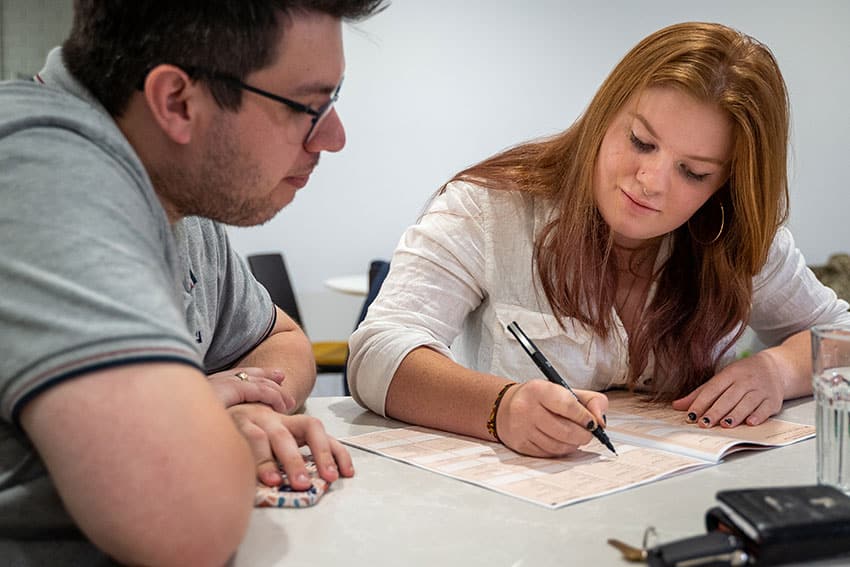
Many Christians, perhaps most, through most of history, have not “practised”, in the sense of going to church on Sundays, or have practised only irregularly. People joke about “C & E Christians” – Christmas and Easter attendees – but that’s always been a significant proportion of us. And however irregular we are, we readily take part in each other’s baptisms, confirmations, weddings or funerals. Many have other priorities on Sunday but that does not mean they are non-believers.
There’s recently been a campaign to get them to tick “no religion” on the coming census.
But there are other senses of “practising” a religion. Like loving the founder, in our case Jesus of Nazareth, and his sublime teachings such as the beatitudes and the parable of the Good Samaritan. Like trying to live up to some high ideals and repenting when we mess up. Like having doubts but wishing for more faith.

No denomination – but still believers
Some people are ‘practising’ in another sense, like praying from time to time, perhaps especially in times of crisis. Like joining in the Christmas carols and thrilling at the Easter story. Like volunteering for a church charity or campaigning for a faith-inspired justice cause (for example, on the rights of the unborn, Indigenous, trafficked or refugees).
Some are ‘practising’ believers in some other sense again, like delighting in the sheer beauty of creation and its intimations of the Creator. Like entrusting their children to a faith-based school, their parents to a church-run aged care place, or themselves to a religious hospital. Like hanging some reminder of the cross around their neck, on the wall, in the car. Or like being proud or comforted by all the charitable works that everyday people of faith perform everyday for the whole community.
My point is: religious believers constitute a very broad church and to accuse most of them of having no religion is to misunderstand human beings and to misunderstand religion. To say that “anyone who isn’t a full-time, every-time, religious hardliner believes none of it” is nonsense.
Reasons why people assume ‘no religion’ describes them
The number of those who tick ‘no religion’ has certainly grown in recent years. But the big jump at the last census was likely because it was, for the first time, put as the first option on the religion question. The census authority noted afterwards that that change may explain all or some of the supposed growth in non-believers.
So some people tick ‘no religion’ because it’s the first option on the form. Or because they have come from countries where declaring your religion was dangerous and they are still wary of identifying on a government form. Or because they are very private about matters of faith.
Some people tick ‘no religion’ because they are attached to Christianity but to no particular variety and so don’t know what else to tick. Or because they are attached to a particular denomination but to no particular place of worship, and so are not on any parish list. Or because they feel out of sorts with religious institutions but would insist that they are still a spiritual person.

All who believe in Christ can identify as His followers
Some people tick ‘no religion’ because it’s an opportunity for a protest vote against some shameful history or present leader. Or because they are agnostic (= unsure for now whether there is a god) but still searching. Or because they are a convinced atheist (= certain there is no god), though they are a tiny minority of people.
My point is: ‘no religion’ is a very broad church indeed and it may very well be that most people in that church are religious believers.
As a Christian religious leader I’d love them all to be at church every Sunday; other religious leaders would like to see all their people at synagogue, mosque or temple on their day. I’m ashamed of the things that have pushed some people away. And I get it that some have questions, disappointments, doubts – we all do. So I’d never denigrate those who belong but in one way or another don’t tick all the boxes. Indeed, if that were the test, there’s been no real Christian since Jesus and his Mum.
We did not choose Him. He chose us
In the end we are Christians, not because we chose Christ but because he chose us. And we need those who are far from perfect in their ‘practice’ or who are rightly angry with the Church about something: we need their gifts, insights, even critique. The Church is still their home. They still belong.
As James Joyce described Catholicism in Finnegans Wake:“Here comes everybody.” And everybody should be counted.
(This article first appeared in the Weekend Australian, 7 August 2021)
Related
